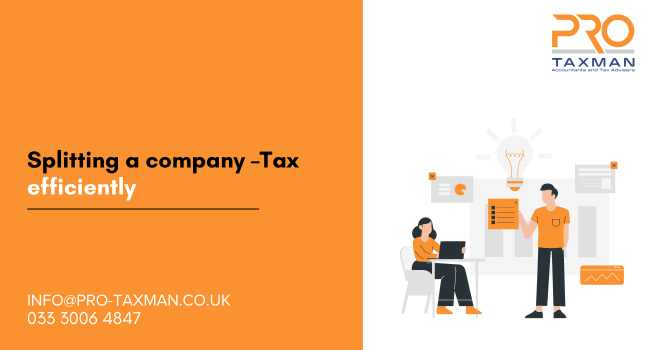Most private companies start as sole owner-managers; roll on a few years and some will have grown such that family members may also work for the business, responsible for different departments or types of businesses, or grown such that there is more than one business under the company name. Family members may wish to take that department forward, separate from the others. Whatever the reason, a demerger may be under consideration, the aim being to undertake the procedure as tax efficiently as possible for the shareholders.
The two main methods by which a company may undertake a demerger without attracting an income tax charge for the shareholders are via an ‘exempt’ demerger (the ‘statutory’ form) or a liquidation demerger under the Insolvency Act 1986 (the ‘non-statutory’ form). Should either of these methods prove impossible or unattractive, a reduction in share capital or a share-for-share exchange may be possible to produce the same result.
Statutory demerger
As ever, there are a several conditions to be satisfied before any demerger can be deemed ‘exempt’ under the statutory rules, not least that the original company must remain a trading company and the intention must be to retain the demerged or successor company and not sell it. However, most demergers are undertaken to hive off one business and sell it, with the shareholders going their separate ways.
However, the demerger is structured by using either the ‘direct’ or indirect methods, both constitute a distribution which would usually be taxable in the hands of the shareholders as income, taxed at dividend rates. Instead, the distribution is treated as a part-disposal of the shares in the distributing company subject to a capital gains tax (CGT) charge as there would be a receipt of shares. However, the transaction should be covered by the ‘tax exempt distribution’ provisions where the assets are transferred at ‘no gain no loss’. At some time, the CGT base cost of the surrendering company will need to be apportioned between that company and the new one(usually on the first disposal of shares from either holding).
The ‘direct’ method is where the shares in the distributing company and the shares in the company being distributed together ‘stand in the shoes’ of the original shares. The ‘indirect’ method involves transferring trading activities to a new company which issues shares to the shareholders of the transferring company as consideration. Note that there may be stamp duty considerations, although reliefs may be available, providing the shareholdings of both companies mirror.
Liquidation demerger
Should it not be possible to comply with the conditions for a statutory demerger, another company or subsidiary will need to be incorporated and the trade transferred to the ‘new company’. The ‘original company ‘ is then liquidated with the distribution of the relevant assets to the ‘new ‘being made by the liquidator.
Other methods
The ‘reduction in capital’ route is sometimes undertaken in preference to liquidation. The usual procedure is for a new holding company to be incorporated to own the shares of the split companies. Similar to the other methods, there will be no income tax implications for the shareholders and any CGT charge can be deferred. Assets transferred from one company to another will be covered under the transfer of business provisions.
‘Share for share’ exchanges may be possible where the intention is for the owners of one business to exchange their interests with another and receive shares in the new company as consideration. As long as no cash consideration is received and the values are the same so that no additional value is transferred, the transaction is effectively a swap of shares with no tax implications.
Practical point
The distributing company must make a return to HMRC within 30 days of making the distribution, which must include details of why it is believed to be exempt. Specific rules ensure that only legitimate ‘business separation’ takes place and that the distributions are not made as part of an arrangement to avoid paying VAT.
Need professional accounting service or tax advice? Contact us to book a 15-min Free Consultation with us today.
To find out more please follow us on Facebook, Twitter, or LinkedIn. Feel free to contact us on 0333 006 4847 or request a call back by texting 075 6464 7474

